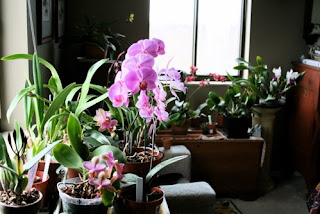Hidden Dangers of Potted Plants
 There are many benefits of having house plants. For those without a backyard, it's pleasant to have a part of nature inside your home. Not only do they add aesthetic value, house plants are known to improve air quality. However, recent studies at University of Georgia's Department of Horticulture shows otherwise.
There are many benefits of having house plants. For those without a backyard, it's pleasant to have a part of nature inside your home. Not only do they add aesthetic value, house plants are known to improve air quality. However, recent studies at University of Georgia's Department of Horticulture shows otherwise.
Volatile Organic Compounds (VOCs), such as methane, and fomaldehyde, have adverse short and long term health effects on animals and humans. While many house plants have the ability to remove VOCs, studies showed that some indoor plants actually release VOCs into the environment.
The studies were conducted on four popular house plants - Peace Lily, Snake Plant, Weeping Fig and Areca Palm. All showed 12-23 different volatile compounds and several of these released VOCs are known to have negative health impacts on animals and humans.
Where were these VOCs coming from?
While some VOCs are ingredients in pesticides applied to the plants during the production phase, others come from micro-organisms living in the soil and plastic pots containing the plants.

To ensure that your house plants are beneficial for you and your family, it is important to keep the following in mind. Purchase pesticide-free house plants, and replace plastic pots with clay ones. While micro-organisms release VOCs, they are also known to remove volatile air pollutants and are necessary for your plants to survive.
The study also revealed that more VOCs were released during the day so it may be a good idea to have some air flow to ensure that VOCs do not stay inside of your home.



0 comments:
Post a Comment